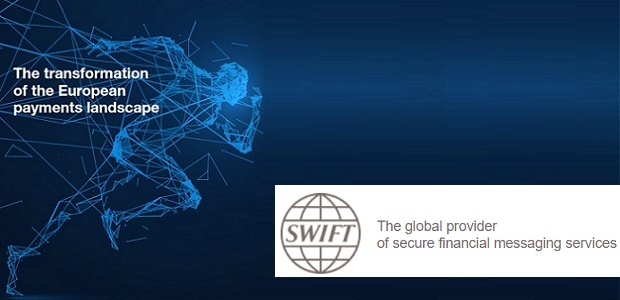
SWIFT white paper examines the drivers of payments transformation in Europe and looks at the challenges and opportunities for financial institutions.
„While change is underway in wholesale and retail payments across the world, in Europe, the Eurosystem has set a clear path for financial market infrastructure renewal. This, along with regulations such as the Second Payment Services Directive (PSD2), is driving a period of radical payments transformation across Europe.”, according to the press release.
In a new white paper, SWIFT examines the drivers for change in the payments sector, both global and European levels, and outlines the challenges and opportunities for incumbents in a market that is undergoing the most extensive transformation ever:
. Digitisation is driving expectations for fast, frictionless and borderless payments that are embedded in transaction chains and eco-systems, whether for retail purchases or business transactions
. Technology, which is offering opportunities for innovation and efficiency is also enabling competitors – fintechs, global retail giants, card networks and digital start-up banks – to challenge incumbent providers and existing business models
. Regulators are intervening to foster competition, protect consumer rights and promote payments efficiency and innovation, for example, by requiring banks to open customer data to third party providers for account information and payment services (open banking).
Alain Raes, Chief Executive EMEA and Asia Pacific, SWIFT said: “The financial industry is going through a period profound change. In this evolving landscape, market infrastructures and financial institutions are having to renew their infrastructure and reshape their business models to meet customer expectations and capitalise on new opportunities. We are committed to supporting our community through this transformation as a trusted partner.”
With the arrival of the second Payment Services Directive, open banking in Europe is being driven by the regulatory agenda, making it possible for fintechs and other innovators to offer new products and services to a wide market. The rise of instant payments is also well underway, with many domestic initiatives either live or in the process of implementation; EBA CLEARING’s pan-European RT1 service is already live, while the Eurosystem’s pan-European TARGET Instant Payment Settlement (TIPS) set to go live in November 2018.
Payments market infrastructures are redesigning and renewing, allowing for greater operational and collateral/liquidity efficiency, and supporting innovation. The global adoption of the ISO 20022 standard is progressing rapidly, with TARGET2 set to migrate in 2021, and EBA CLEARING’s EURO1 and cross-border payments on SWIFT set to migrate in the same timeframe.
All of these changes – new levels of competition, major technology innovation and an unprecedented re-shaping of long-accepted payment products, relationships and timescales – put a great amount of pressure on banks. At once they need to reinvent themselves and find new ways of doing business, even while making the most of their considerable assets: customer bases and data; risk management capabilities; balance sheet strength; industry knowledge and trust.
The paper outlines some of the choices that financial institutions face and features contributions from five major banks on how they see the future.
Banking 4.0 – „how was the experience for you”
„To be honest I think that Sinaia, your conference, is much better then Davos.”
Many more interesting quotes in the video below: